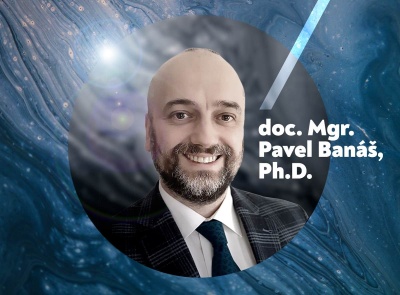CATRIN is led by physical chemist Pavel Banáš
The Czech Advanced Technology and Research Institute (CATRIN) has been led by the physical chemist Pavel Banáš since this January. The then vice-rector for the strategy of science and research was appointed to the post of director of the higher education institute by the UP Rector Jaroslav Miller.

“I deeply appreciate your patience and readiness to build the new research institute—CATRIN—which will certainly follow the success and excellence of our research centres. During January, a team from the Institute of Molecular and Translational Medicine will join us and I strongly believe that together we will contribute to the constitution of the strongest and most significant research institute in Central Europe. I promise you, as CATRIN Director, that together with the management of the institute we will do our best so that you will not have to worry about your future and you will be able to fully focus on doing excellent science,” wrote the director to the staff.
According to him, the directors of the research centres have built excellent workplaces over the last decade filled with highly talented and hard-working people. “By integrating these centres, we will strengthen the connection with the university, and I believe we will be able to establish many new collaborations. As vice-rector, I had the opportunity to see that there are a number of excellent scientific teams at the university across all faculties, and only by working together can we respond to the great challenges facing contemporary science,” added the director of the institute.
The higher education institute was formed by the integration of CRH, RCPTM and IMTM research teams. The Academic Senate of UP approved its establishment in December 2019. CATRIN’s Statute took effect on 1 October 2020. Full operation started on January 1, 2021.
Pavel Banáš, 40, is a graduate of UP’s Faculty of Science. His scientific interest is, in particular, the structure and dynamics of nucleic acids and the development of theoretical simulation methods for their study. Over the past two years, he, as vice-rector for the strategy of science and research, has been primarily engaged in the development of a methodology for evaluating science and research at Palacký University.

